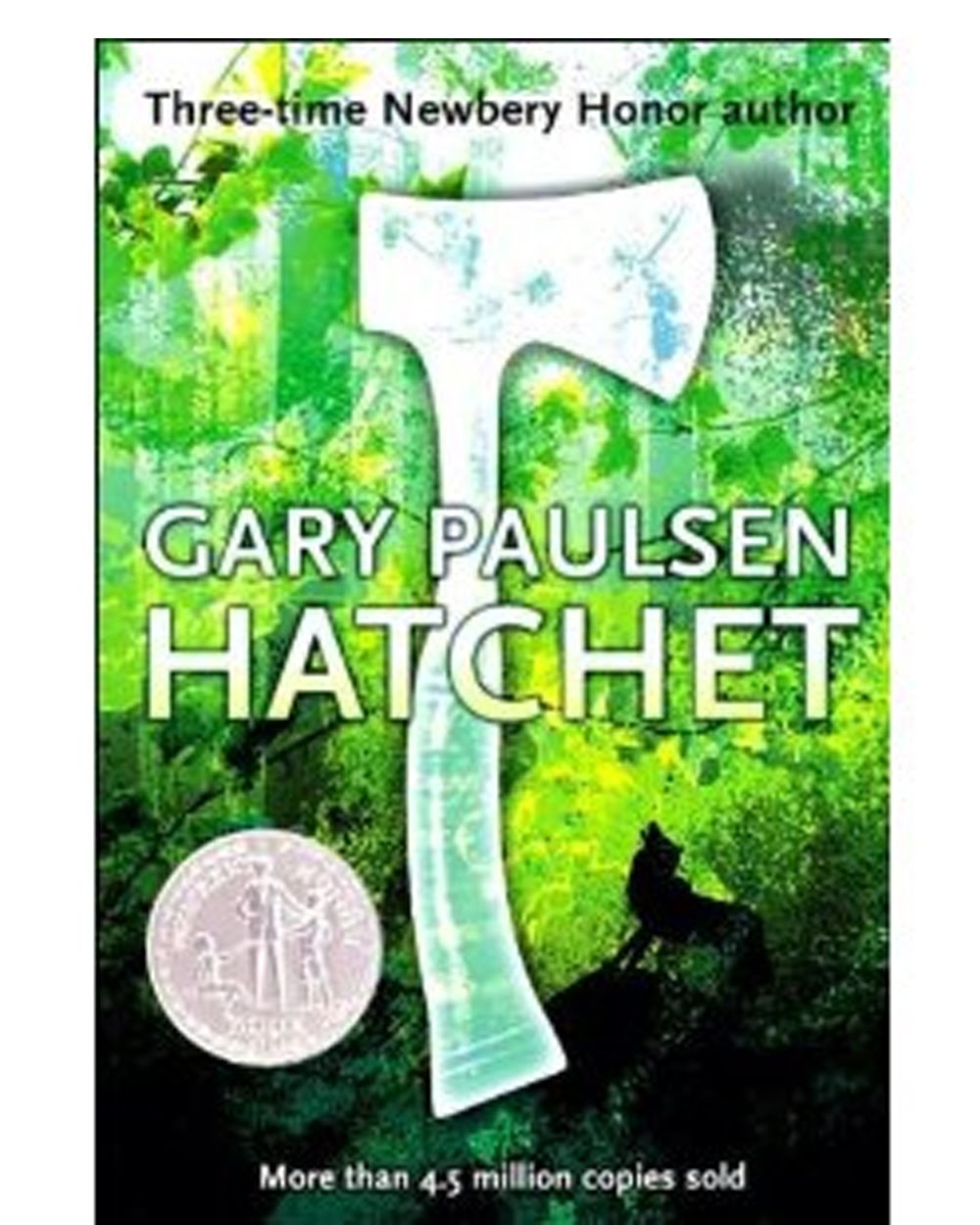I’ve been doing survival research of late, and especially enjoyed tapping into the psychological impact of people thrust into a natural disaster or emergency situation. Â And since everything in research should be sprinkled with a bit of fiction love if it possibly can, that meant re-reading Hatchet and also diving into Stranded, which I’ll discuss next week.
This week on the, ahem, chopping block is Gary Paulsen‘s Newbery Honor winner, Hatchet.
I know I read this book as a kid, but I think I must have been reading it while half asleep snuggled under my covers, because I could remember only snatches and pieces until after I’d re-read each part. Â Which isn’t like me, since my memory of books is usually quite good. Â Perhaps my younger self was so frightened for Brian, in his struggle to survive after the pilot flying the plane he’s on has a heart attack, and subsequently crashes, that I just skimmed over everything else, til I found out how he survived. Â I really don’t know, and since my time machine is broken I can’t go ask myself til next week when I finish the repairs. Â Sigh. Â Such problems I have…
But, getting back to the spotlight! Â Hatchet is a survival story, and has lots of fascinating details about how total-suburb-boy Brian solves the problems of getting food, taking care of himself, and providing himself protection while living in the Canadian wilderness for nearly two months. Â However, it’s much more than a survival story, as you can probably guess from its staying power and awards. Â It’s also the story of one boys growth and changing psychological state as he comes to terms (on some level) with his parent’s divorce, his mother’s Secret, and his apparent abandonment when the search for him is called off. Â More than all of that, it’s the story of how he becomes one with the land he must rely on to survive, and through that oneness achieves a peace that transcends merely surviving.
Utterly engrossing and emotionally rich, I suspect it’s more likely to be a success with teens (it’s listed for them) and adults than the average middle grader, so yes I’m cheating a bit by including it, but it’s also true that many middle schoolers would be ready for this. Â Certainly the crowd of 13 and 14-year-olds that are reading Hunger Games could handle Hatchet, and would probably thoroughly enjoy it.
Let’s see what Apricot-kitty thought of it:
 “That poor boy, having to live off berries for the first few days. Â Can you even imagine? Â It makes me want to barf a hair ball. Â Thankfully a cat would have no difficulty catching food, and would be sure to land on her feet. Â Still, I was quite impressed with his quick thinking in creating a fish trap. Â Fish make very good eating, you know!”
“That poor boy, having to live off berries for the first few days. Â Can you even imagine? Â It makes me want to barf a hair ball. Â Thankfully a cat would have no difficulty catching food, and would be sure to land on her feet. Â Still, I was quite impressed with his quick thinking in creating a fish trap. Â Fish make very good eating, you know!”
Yes, well, I’m not sure how cheerfully a cat would land on her feet when that landing included swimming up out of a swiftly sinking airplane and paddling all the way to shore, but Apricot’s right that beyond that a cat’s survival would probably be pretty good. Â How do you think you would fair? Â Do you believe survival means more than merely staying alive?
Stop by Shannon’s blog for other great reads, and happy Marvelous Middle Grade Monday!


Jenni Enzor
Suzanne Warr
Claire M. Caterer
Suzanne Warr
Joanne Fritz
Suzanne Warr
Pingback: Tales from the Raven » Lawn Boy, by Gary Paulsen